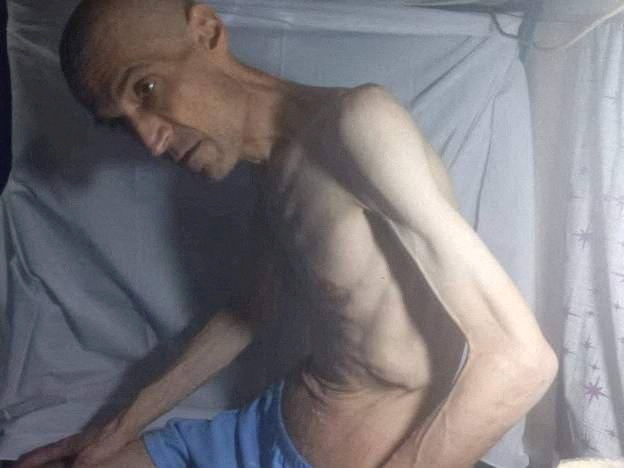DUBAI (Reuters) – Iran on Friday released hunger-striking jailed dissident Farhad Meysami, the Iranian judiciary said, a week after supporters had warned that he risked dying for protesting against the compulsory wearing of the hijab.
Images on social media of an emaciated Meysami, who had been in jail since 2018 for supporting women activists protesting against Iran’s headscarf policy, had gone viral and caused outrage among social media users and international rights group.
“Following the approval by the leader of the revolution (Supreme Leader Ayatollah Ali Khamenei) of the recent …amnesty, Farhad_Meysami was included in this amnesty and was released from prison hours ago,” the judiciary said on Twitter.
On Sunday, Ayatollah Khamenei issued an amnesty covering a large number of prisoners including some arrested in recent anti-government protests, after a deadly state crackdown helped quell the nationwide unrest. The order coincided with events marking the anniversary of Iran’s 1979 Islamic revolution.
Iran has been rocked by nationwide unrest following the death of Iranian Kurdish woman Mahsa Amini on Sept. 16 in police custody, one of the strongest challenges to the Islamic Republic since the 1979 revolution.
Morality police arrested Amini for flouting the hijab policy, which requires women to dress modestly and wear headscarfs. Women have played a prominent role in the protests, with many waving or burning their headscarfs.
Rights groups say more than 500 protesters have been killed and nearly 20,000 arrested. At least four people have been hanged, according to the judiciary.
Images showed Meysami curled up on what looks like a hospital bed, and another standing, his ribs protruding.
“Shocking images of Dr. Farhad Meysami, a brave advocate for women’s rights who has been on hunger strike in prison,” tweeted Robert Malley, Washington’s special envoy for Iran.
Amnesty International said: “These images (of Meysami) are a shocking reminder of the Iranian authorities’ contempt for human rights.”
In a letter, Meysami had made three demands: an end to executions, the release of political-civil prisoners and an end to “forced-hijab harassment”.
(Reporting by Dubai newsroom; Editing by Nick Macfie)
